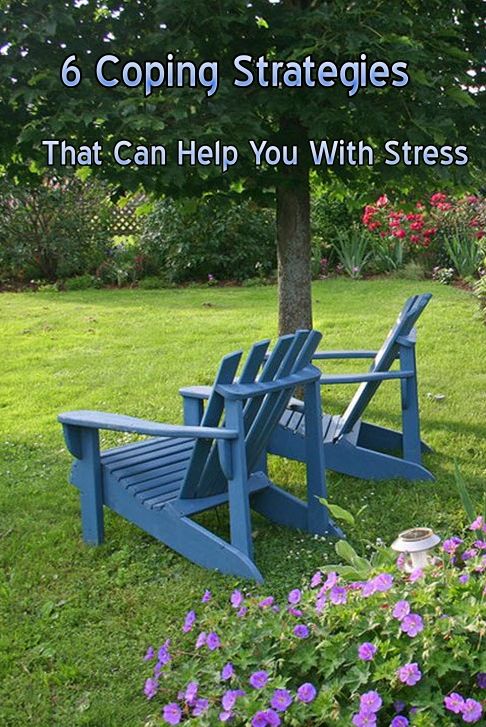Differences in Coping Strategies
Most of us are familiar with unhealthy ways of coping with the stressors in our lives, such as certain types of addictions. These may be addictions to alcohol, drugs, gambling, etc. But, what about some healthier and more inspirational ways to cope with the stressors that occur in our lives?

Some of the healthier ways of coping have to do with mindset. In other words, what are some better ways of looking at the things that happen to us? What are some of the healthier perspectives or points of view? That is what we are going to talk about in this article.
In this article, we are going to talk about 6 mental attitudes that people use on a regular basis to help them cope. Often, people are using these coping strategies without even being aware of them! Perhaps you will recognize yourself in some of these strategies! Or, perhaps you will recognize the need to adopt some of these strategies in your own life.
DOWNWARD COMPARISON:
Downward Comparison occurs when a person takes a good look at their own problems and then compares them to the problems of other people, realizing that “in comparison,” their problems are not so bad after all. Downward Comparison is a way of “reducing the relative impact” in their lives. 
For example, a person who is using the Downward Comparison strategy will say to themselves, “This is not as bad as things that happen to other people.” This strategy is what I think of as “getting a dose of reality.” We all tend to dwell on our own problems because that is what we are immediately concerned with fixing or correcting in our lives.
You are most likely familiar with having the experience of learning of something much worse happening to someone else and suddenly, your problems don’t seem so bad after all. Whenever something happens to someone else that we care about, it often causes us to think, “I will never complain about my problems again, because my problems are not nearly as bad as what happened to someone else that I know.” That would be an example of Downward Comparison.
POSITIVE REAPPRAISAL:
Positive Reappraisal is the strategy we take whenever we go through life focused on the things we have learned from certain challenges or struggles that we have gone through, and choosing to focus on the lesson. For example, the age-old saying, “What doesn’t kill you makes you stronger.” Positive Reappraisal is a way of “redefining challenges in our lives that must be overcome.”
Another example of Positive Reappraisal would be to say to yourself, “I will come out of this experience better than when I went in.” Positive Reappraisal is a strategy used by people who have gained wisdom with age, and often have a level of emotional maturity.

Whenever a person is using Positive Reappraisal, they look back on specific difficult times of their lives and recognize that it has helped them to develop personality characteristics that are beneficial as a whole. A person might become more compassionate towards others because of something difficult that they have gone through.
A person exercising Positive Reappraisal will recognize this fact and say to themselves, “If not for this bad thing that happened to me, I would not have otherwise developed a sense of compassion, forgiveness, empathy or sympathy towards other people.”
COGNITIVE DISENGAGEMENT:
A person who exercises the strategy of Cognitive Disengagement will “choose their battles,” so to speak. Often, especially when we are younger, we tend to let the little things upset us. As we grow older and gain wisdom with age, we learn to recognize the difference between when something is important enough to take a stand versus when something is unimportant enough to let it go.
A person who is using this coping strategy will tend to say to themselves, “This situation isn’t worth getting upset about.” Not only does it help that person keep their own inner level of peace and serenity, but it helps to keep peace with those around them, as well. Cognitive Disengagement is a way of “downgrading the stressor as something totally irrelevant.”
OPTIMISM:
This is the one coping strategy that is probably the most well-known and talked about. Rather than going through life with a negative attitude and putting their focus on all of the “bad” or “wrong” things that have happened in life, a person who is using the strategy of Optimism will likely look at the positive side of things.
They will say to themselves certain phrases such as, “Everything will work out in the end.” They will focus on the idea that, “Although I might not understand this or why it is happening, I trust that in the end, everything will turn out all right.” Optimism “reduces the impact by focusing on the positive rather than the negative.”

FAITH IN SOCIAL SUPPORT:
This coping strategy is most commonly used by people who have a support system in place or people in their lives that they can count on or go to for help when in need. A person using this strategy will tend to say to themselves, “I have others who can help me through this.” Faith in Social Support is “placing the focus on the positive outcome.”
They may know that if they get in a bind, they can always go to certain family members, co-workers, church members or friends who are “always there for them.” They have people they can count on, people who will be there for them whenever they get in a bind. Any type of social support system will work in these types of situations.

If a person does not have a social support system in places such as a group of family members or friends, it is a good idea to seek out a support system of people who understand what they are going through or dealing with. For example, there are support groups in place that can help people who are struggling through addictions, struggling with grief, or other serious life crises.
This is the reason that support groups such as Alcoholics Anonymous have been such a successful strategy for so many people. People who are struggling with Alcohol Addiction and are members of AA know that if they find themselves in a situation that becomes too difficult for them to handle alone, they can call other members of the group to “help them get through it.” This would be an example of having Faith in Social Support.
LIFE PERSPECTIVE:
The coping strategy of Life Perspective is an effective coping strategy whenever people have one area in their lives that is good and strong and other areas in their lives that are in disarray. For example, a person may have a happy marriage, but have a job where they feel they are going mistreated. A person who is unhappy with their job situation may say to themselves, “I can put up with this as long as my marriage is still okay.”

Or, “I can put up with this as long as everything else in my life is okay.” They are telling themselves that they can put up with anything, as long as that one (or more) other areas of their lives are satisfactory. They will think to themselves, “This may be a bad situation I have to deal with every day, but as long as I have you, I will be okay.”
They tend to focus more on their blessings such as a spouse, their children, their friends, or other aspects of their lives that they consider is going well. Life Perspective is a way of “reducing relative impact of the stressor by comparing it with other positive features of their life.”
As you may have guessed, people tend to use these 6 Coping Strategies as they develop a sense of maturity or wisdom that comes with age. If a person can develop the habit of looking at stressors differently, they will begin to gain control of some of the stressors that happen to all of us every day, and not let them interfere with our “peace of mind.” To learn the best coping strategies, click here.

I hope you enjoyed this article! Please feel free to comment or share.



